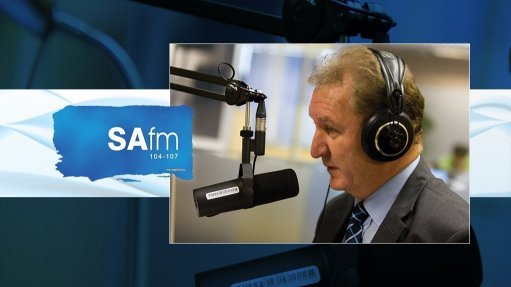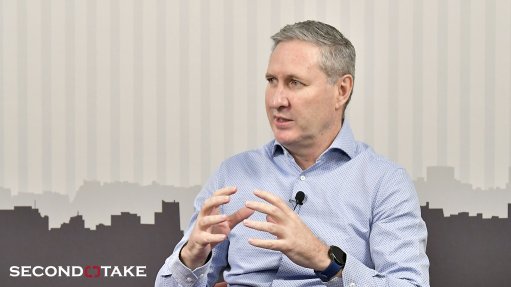African foreign currency liquidity shortages are driving financial innovation
This article has been supplied by the author and has not been written or solicited by Creamer Media. It may be available only for a limited time on this website.
By Bohani Hlungwane, Managing Principal & Head: Trade and Working Capital (Pan Africa) at Absa CIB
The 15th Summit of BRICS Nations was recently held in South Africa during which many discussions were had regarding the trading bloc, it’s proposed expansion to include additional countries, how it could impact the relationship with the US, and the longer term impact on the US dollar. While it is clear that the US dollar remains the de-facto currency for global trade, the current foreign currency liquidity shortage in some countries on the continent is a key trade issue which needs to be addressed and overcome in order for continued prosperous trade across the continent .
Kenya, Ghana, Tanzania, Nigeria, and Angola have recently struggled with USD liquidity shortages and this is creating a challenging operating environment in which to attract Foreign Direct Investment (FDI). Considering the resource rich nature of the African continent, we should be creating an environment which is conducive to attracting trade and investment.
Angola, for instance, is an interesting market. As an exporter of oil, there should be a dollar-rich operating environment. Unfortunately, it is having to use much of its US dollars to settle dollar denominated debt and high-volume imports into the country which in turn is devaluing the local Kwanza. Angolan policymakers have responded to this shortage in a couple of ways including building smaller refinery capacity, diversifying away from reliance on oil, looking to boost agriculture and regulations which specifically guide around investment in agriculture – all of this to build up local capacity and supply of dollars.
The Angolan example highlights the challenge: It is exceedingly difficult for Africa to grow if it doesn’t control the currency or currencies in which it trades.
In Kenya, currency swaps have become a popular tool to help deal with foreign currency shortages, but they are not a long-term solution. In short, a currency swap is an agreement in which two parties exchange the value of a loan in one currency and settle in another. While these have gained popularity in places like Kenya and Tanzania as a solution for foreign exchange shortages, there is a sense of “kicking the can down the road” and many people are asking whether the market will have matured enough 6 or 12 months down the line to face the consequences of raising interest rates or currencies that fluctuate in the wrong direction.
At a sovereign level, Kenya has driven a Government to Government (G2G) trading market for the trading of oil in the hope that there will be enhanced liquidity in terms of dollars down the line.
On the ground, there is a lot of focus on digitisation and how we can bring together FinTechs, Development Finance Institutions (DFIs) and other parts of the ecosystem to tackle this issue. Recently HSBC made a $35m investment in TradeShift which is a platform for building Business-To-Business payments and supply-chain procurement. Absa itself has invested in agri-tech start-up Khula! – a platform which connects farmers, buyers, and funders across the agriculture value-chain on the continent.
Innovative digital marketplaces like these will be key to driving trade on the continent, particularly as the African Continental Free Trade Area (AfCFTA) becomes more active.
There is no question that the US dollar will remain the primary currency of settlement for the immediate future, but the recent BRICS Summit highlighted the interest in Africa as a continent. The likes of China and India are making significant investments in trade partnerships and clearing in currencies such as the Indian Rupee and the Chinese Yuan
While 95% of our clearing goes through “Western” institutions in the US and Europe, we cannot ignore the fact that the 4 largest banks in the world are now Chinese. There is a shift happening in global financial markets and we need to ensure that we develop financial solutions which are able to accommodate these changes.
As one of the leading Pan-African banking groups, Absa is committed to seeing trade on the continent flourish. While we recognise that there are short-term challenges around foreign exchange, we remain committed to working with our clients and stakeholders to establish innovative solutions that will ensure that short-term liquidity issues don’t hold back long-term investment.
Comments
Press Office
Announcements
What's On
Subscribe to improve your user experience...
Option 1 (equivalent of R125 a month):
Receive a weekly copy of Creamer Media's Engineering News & Mining Weekly magazine
(print copy for those in South Africa and e-magazine for those outside of South Africa)
Receive daily email newsletters
Access to full search results
Access archive of magazine back copies
Access to Projects in Progress
Access to ONE Research Report of your choice in PDF format
Option 2 (equivalent of R375 a month):
All benefits from Option 1
PLUS
Access to Creamer Media's Research Channel Africa for ALL Research Reports, in PDF format, on various industrial and mining sectors
including Electricity; Water; Energy Transition; Hydrogen; Roads, Rail and Ports; Coal; Gold; Platinum; Battery Metals; etc.
Already a subscriber?
Forgotten your password?
Receive weekly copy of Creamer Media's Engineering News & Mining Weekly magazine (print copy for those in South Africa and e-magazine for those outside of South Africa)
➕
Recieve daily email newsletters
➕
Access to full search results
➕
Access archive of magazine back copies
➕
Access to Projects in Progress
➕
Access to ONE Research Report of your choice in PDF format
RESEARCH CHANNEL AFRICA
R4500 (equivalent of R375 a month)
SUBSCRIBEAll benefits from Option 1
➕
Access to Creamer Media's Research Channel Africa for ALL Research Reports on various industrial and mining sectors, in PDF format, including on:
Electricity
➕
Water
➕
Energy Transition
➕
Hydrogen
➕
Roads, Rail and Ports
➕
Coal
➕
Gold
➕
Platinum
➕
Battery Metals
➕
etc.
Receive all benefits from Option 1 or Option 2 delivered to numerous people at your company
➕
Multiple User names and Passwords for simultaneous log-ins
➕
Intranet integration access to all in your organisation
















